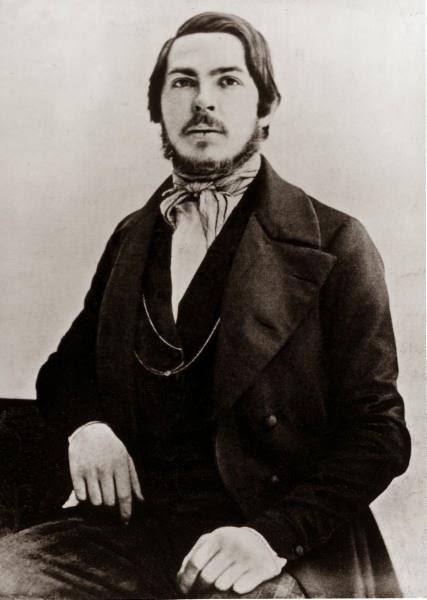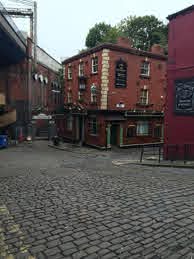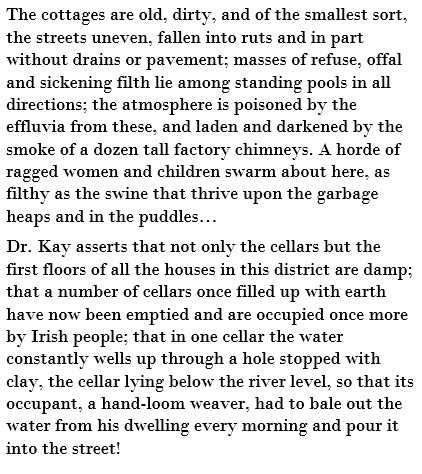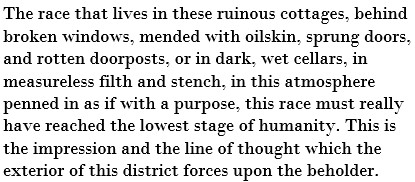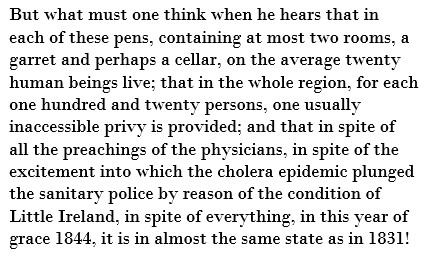Just a couple of things about young #Engels for the day that's in it.
Not his greatest fan as a thinker - tho he did more than Marx to write gender issues into the analysis of class and history.
But also, y'know, he put up with Marx.
Not his greatest fan as a thinker - tho he did more than Marx to write gender issues into the analysis of class and history.
But also, y'know, he put up with Marx.
In fact he supported him loyally to do his writing despite the man's legendary messiness with deadlines and sticking to the topic (in fairness Engels was a bit like that too as a younger man). He also devoted his declining years to pushing his friend's work further.
But just a couple of things on Engels and Ireland.
One, the Burns sisters. We don't know remotely enough about Mary in particular, but you can feel her presence in his fury at what capitalism was doing to working people in Manchester.
One, the Burns sisters. We don't know remotely enough about Mary in particular, but you can feel her presence in his fury at what capitalism was doing to working people in Manchester.
And Lizzie, who brought Fenians into the Marx-Engels circuit, pushing Irish issues onto the Marxist agenda and notably into Eleanor Marx' concerns.
Two extraordinary women who we should celebrate more.
Two extraordinary women who we should celebrate more.
Without Mary, a toff like Engels would never have been able to visit the places he did and come out in one piece.
She was 24, he was 25, when Condition of the Working Class in England came out.
Maybe not so easy to imagine these two kids walking through those streets.
She was 24, he was 25, when Condition of the Working Class in England came out.
Maybe not so easy to imagine these two kids walking through those streets.
Not least b/c most of their Manchester no longer exists. I'm told the walking tour can only show one building that's still there from 1845 - in part ofc because of decades of labour movement struggle and public housing.
Also as Steven Marcus says, because the *industrial* city was such a new thing that writers struggled to find a way of talking about it.
Not least because (like most novelists now) they didn't actually know that working-class world at all.
Engels got closer to it, thru Mary.
Not least because (like most novelists now) they didn't actually know that working-class world at all.
Engels got closer to it, thru Mary.
But here's the thing that sticks most with me.
If you come out of Oxford Rd station in Manchester and go down the stairs to your right, you come into a large hole with a few buildings in it.
Just that hole, between the station, the railway and the Medlock.
If you come out of Oxford Rd station in Manchester and go down the stairs to your right, you come into a large hole with a few buildings in it.
Just that hole, between the station, the railway and the Medlock.
In 1845, there were four thousand people living there.
This was Little Ireland.
20 ppl to a house. 1 toilet per 120 ppl. The water from the river seeping into all of it. https://ifthosewallscouldtalk.wordpress.com/2016/09/12/long-lost-histories-little-ireland-manchester/
This was Little Ireland.
20 ppl to a house. 1 toilet per 120 ppl. The water from the river seeping into all of it. https://ifthosewallscouldtalk.wordpress.com/2016/09/12/long-lost-histories-little-ireland-manchester/
And you can hear the fury in his writing.
He imagines a middle-class observer making the judgements of the day:
He imagines a middle-class observer making the judgements of the day:
Yes, he says, but why do ppl have to live like this?
And there is the whole perspective turned on its head. He takes off his top hat and sees it through Mary's eyes:
And there is the whole perspective turned on its head. He takes off his top hat and sees it through Mary's eyes:
This is before the Manifesto, when he and Marx are still penning those fantastic visions of what human beings are and can be, still young and visionary readers.
But he also sees *what it means*, in people's lives, and whose fault it is that ppl's lives are like this.
But he also sees *what it means*, in people's lives, and whose fault it is that ppl's lives are like this.
Little Manchester is gone, and the Manchester Irish moved on. But they fought as workers, as trade unionists, as socialists and in a dozen other ways to make the place better.
Mary, and Engels, helped to talk about their world in different ways, and to change it.
Mary, and Engels, helped to talk about their world in different ways, and to change it.
If you're ever in Manchester, get off at Oxford Rd, just one stop along from Piccadilly. Go down those steps and think about it.
Think about that four thousand people living in a wet hole in the year of the Famine.
Think about Mary leading Engels through those streets.
Think about that four thousand people living in a wet hole in the year of the Famine.
Think about Mary leading Engels through those streets.
Think about how all those immigrants - the Irish and the German - struggled to change the world.
We know they got it wrong, they didn't do enough, and they weren't always on the right side.
The battle is only half fought, and sometimes it's good to look back to look forward.
We know they got it wrong, they didn't do enough, and they weren't always on the right side.
The battle is only half fought, and sometimes it's good to look back to look forward.

 Read on Twitter
Read on Twitter